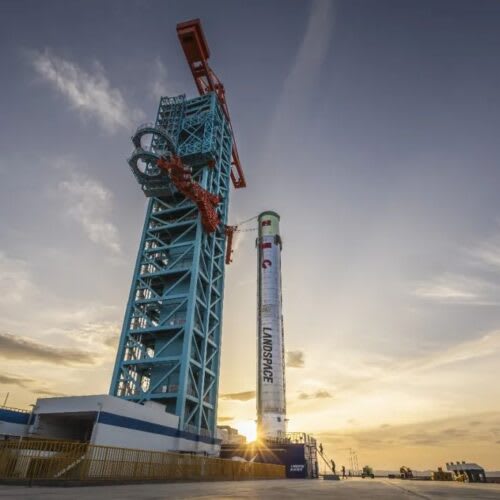Asia's Leap into Reusable Space Technology: A New Era in Rocketry
 The Tech Times
The Tech Times
In a significant stride forward for space exploration, two major Asian powers have reached critical milestones in reusable rocket technology. This development marks a pivotal moment in the dynamic and rapidly evolving landscape of global space exploration, presenting both exciting opportunities and potential challenges.
The Context of Reusability in Space Exploration
The concept of reusable rockets has revolutionized the space industry over the past decade. Historically, the cost of space travel has been primarily driven by the expendable nature of rocket components. Each launch required an entirely new set of hardware, making space missions prohibitively expensive for many endeavors. SpaceX, under the leadership of Elon Musk, disrupted this paradigm by developing the Falcon 9, a partially reusable rocket. This innovation has not only reduced costs significantly but has also increased the frequency and accessibility of space travel.
Asia's recent advancements in this domain underscore a broader trend of technological democratization. Countries that were once peripheral players in the space race are now emerging as formidable competitors, reshaping the geopolitical dynamics of space exploration.
The Asian Milestones
The two Asian nations reaching milestones in rocket reuse are not specified in the snippet provided, but it is reasonable to hypothesize that they could be China and India, given their historical activity in space exploration. China has been aggressively pursuing advancements in space technology, as evidenced by its successful Chang'e lunar missions and the construction of its own space station, Tiangong. India, with its cost-effective Mars mission and a busy schedule of satellite launches, has demonstrated its prowess in efficient space engineering.
These milestones reflect a significant technical achievement. Developing a reusable rocket involves mastering complex engineering challenges, including heat shielding, landing precision, and rapid turnaround times. Achieving this feat positions these countries as leaders in next-generation space technology.
Implications and Challenges
While the achievement of these milestones is undoubtedly commendable, it raises several issues that need to be addressed. Reusable technology, by making space access cheaper and more frequent, could lead to increased congestion in Earth's orbit. This congestion poses a risk of collisions, which could create space debris, further complicating orbital navigation.
Moreover, the strategic implications of these advancements cannot be overlooked. With space increasingly seen as a domain of military and strategic importance, the ability to launch and relaunch rockets swiftly could alter defense postures and trigger new policy considerations.
Conclusion: A New Era Dawns
The strides made by these Asian nations in reusable rocketry signify more than just technical achievements; they represent a shift toward a more multipolar space exploration environment. This shift could foster greater innovation through competition and collaboration, driving humanity further into the cosmos.
However, as we stand on the brink of this new era, it is essential to proceed with caution. Collaborative international efforts will be crucial to ensure that advancements in space technology are used for the benefit of all humankind, rather than leading to conflict or unsustainable practices.
The journey into space is no longer the exclusive domain of a few Western nations. With Asian countries now making significant contributions, the landscape of space exploration is richer and more diverse than ever before. As these countries continue to develop and refine their reusable technologies, they will undoubtedly play an increasingly vital role in shaping the future of space travel.
Source: Rocket Report: Two big Asian reuse milestones, Vandenberg becomes SpaceX west
Subscribe to my newsletter
Read articles from The Tech Times directly inside your inbox. Subscribe to the newsletter, and don't miss out.
Written by
